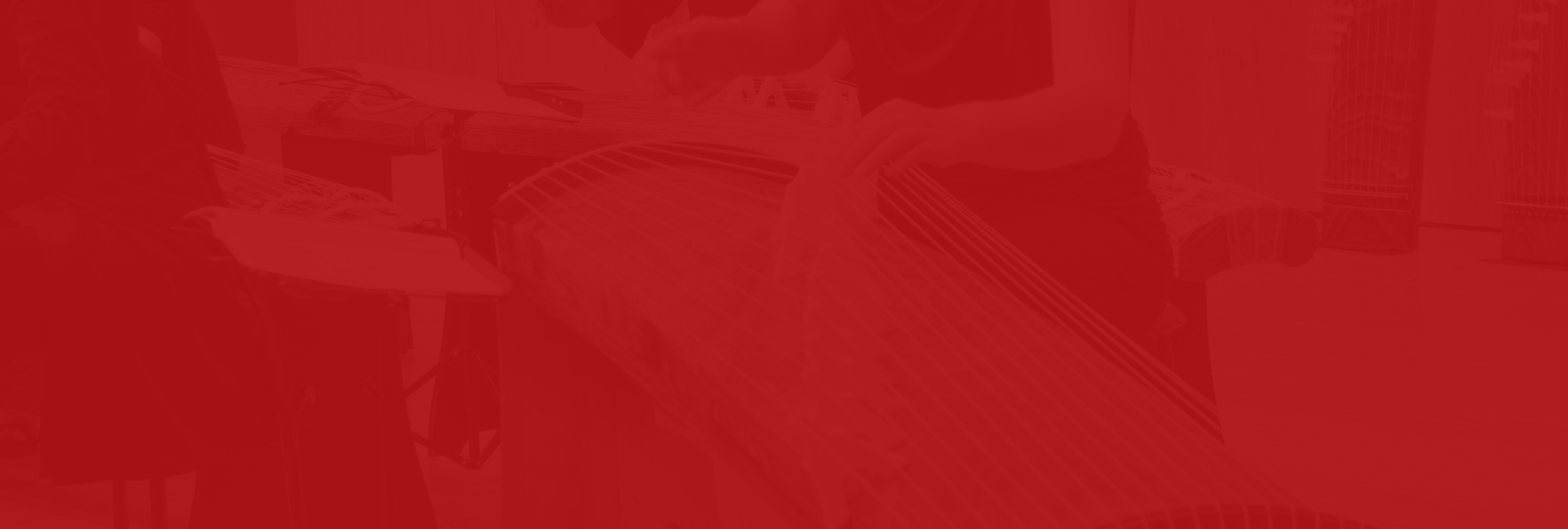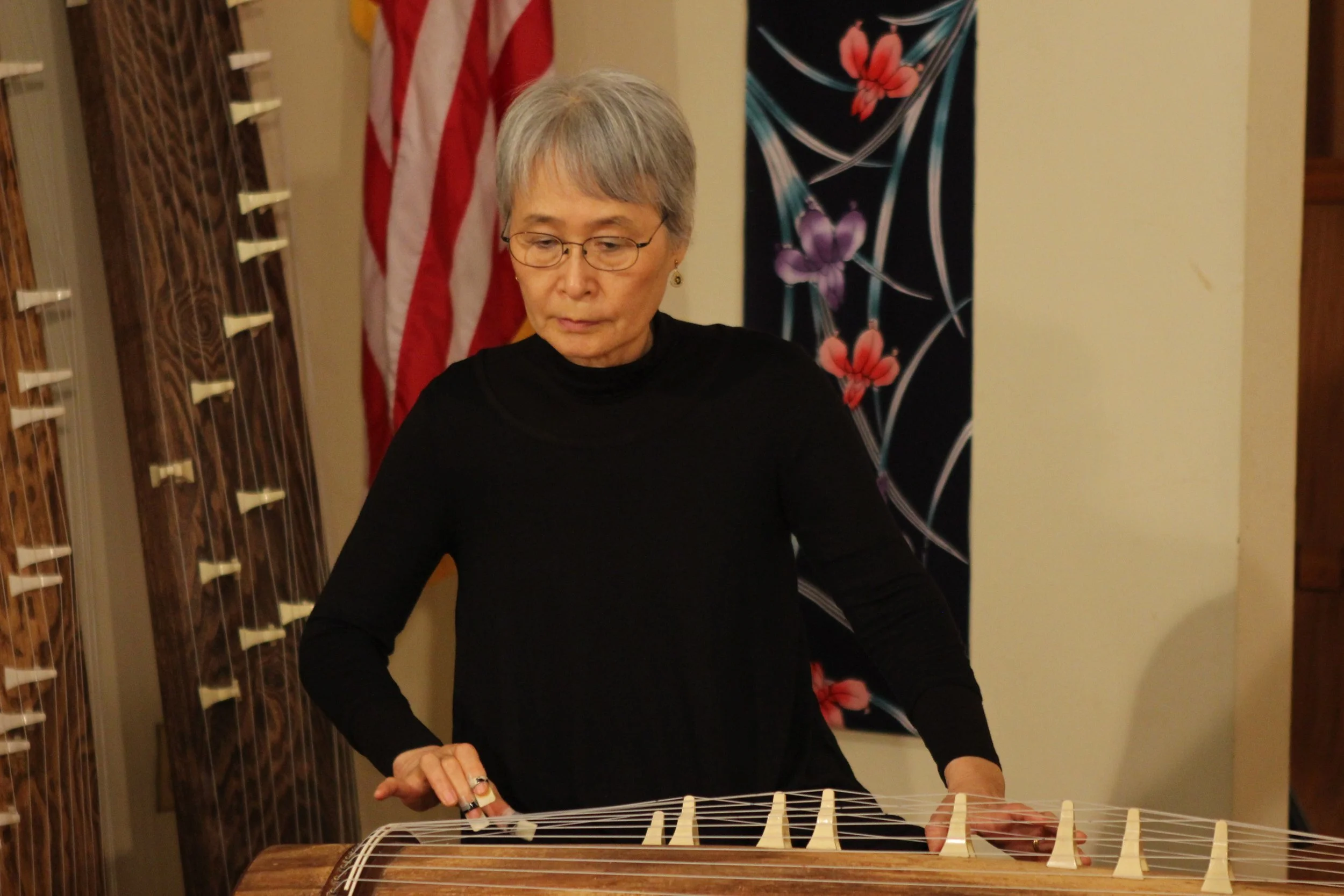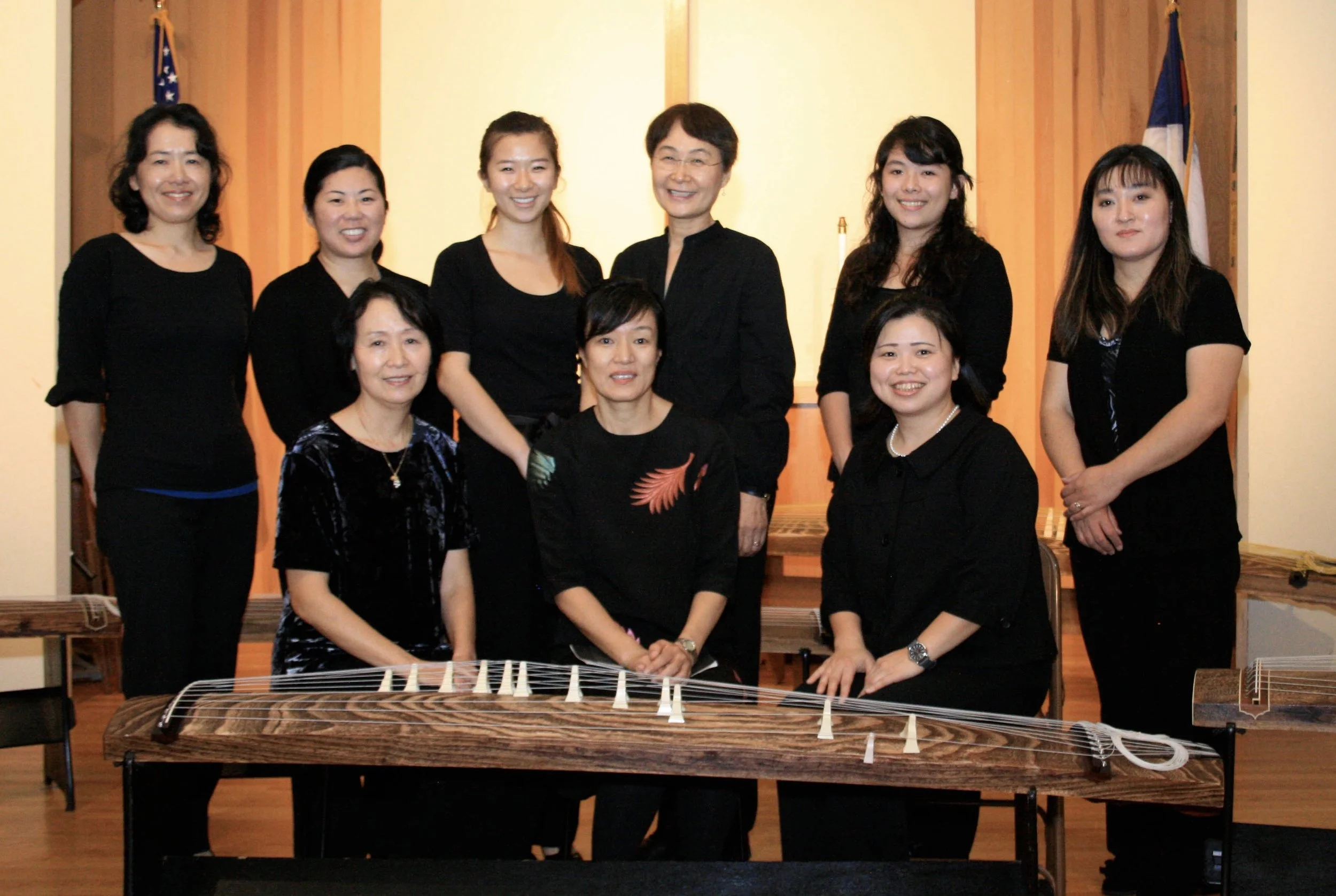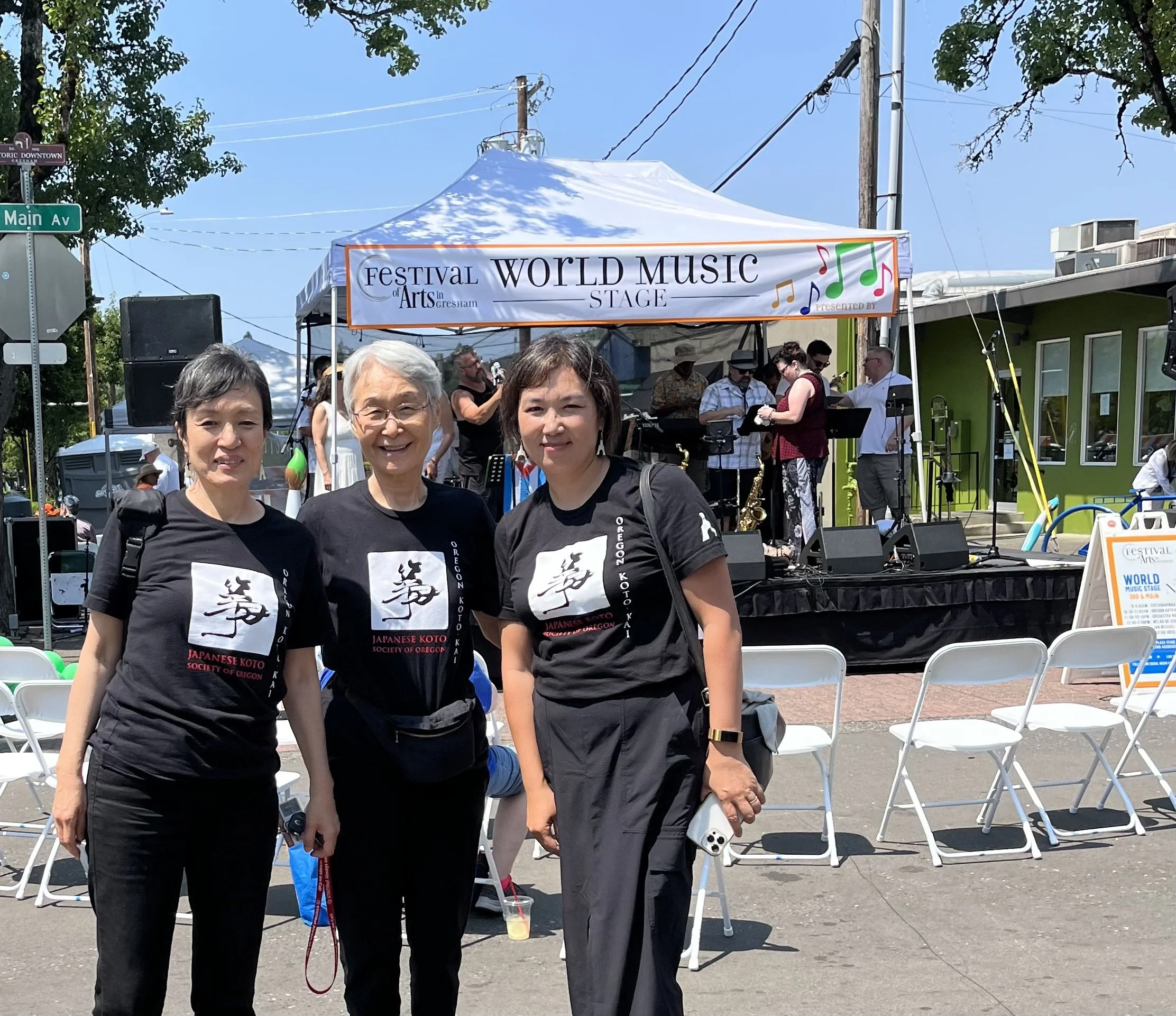
Player spotlight:
Nobuko Chalfen
When I left Japan about thirty-six years ago, I brought some koto books and tsume (koto picks) vaguely thinking or hoping I might have the opportunity to play koto in the US. For over ten years, I took lessons in Japan when I was in my early twenties from a very old traditional teacher. Whenever I visited her, I had to sit down on a tatami mat which was uncomfortable. And when I finished my lesson, I could not stand up because my legs were numb. The teacher showed me how to create refined beautiful sounds, which suit a relatively small tatami room. Even though the situation was a bit difficult, I loved and enjoyed my lessons.
I met Mitsuki-sensei at the moon viewing in the Portland Japanese Garden in 2010. The good old sounds of koto reminded me of my days in Japan. At that time, I decided to take lessons from her when I would retire because her koto sounds were very elegant and at the same time very energetic, powerful and they appealed to my heart. But I decided to start the lessons in 2012 two years before my retirement instead, so that the transition would go smoothly.
My Life with Koto
At the first lesson with Mitsuki-sensei, I told her that my dream in the future was to play the Four Seasons by Vivaldi. She said, “Hayai desu yo” which means, “it’s fast.” I interpreted that to mean it would be too difficult for me, and I was discouraged and disappointed.
But the dream came true when Oregon Koto-Kai (OKK) had its 6th Annual Concert in 2017 at the Lincoln Recital Hall at PSU. We played Spring from Four Seasons. Yay! And in 2019, we played it again in the Agnes Flanagan Chapel at Lewis and Clark College for our 8th Annual Concert. That was a very memorable concert because we had invited koto virtuoso, Kazue Sawai. When I heard her playing Rokudan with a 17-string base koto, I was moved to tears.
Mitsuki-sensei and her former students, Noriko Dozono, Atsuko Tokunaga, and I started meeting in 2013 to establish Oregon Koto-Kai as a nonprofit organization. We spent hours and hours discussing annual activities, rules, and creating bylaws. It took about two years finally to get approved as a nonprofit organization from the IRS in 2015 with support from an attorney, Michelle Sugahiro. I served as the secretary of OKK since its beginning, from 2013 until 2017, and as the treasurer from 2016 to 2023. I think my detail-oriented personality fit into these roles and I would spend hours to find out even a one cent discrepancy. I hope OKK will thrive more and more in the future and introduce more and more people to the beautiful Japanese culture, enriching diversity through koto music.
I am the oldest student not only in age. Mitsuki-sensei knows each student’s character and guides us accordingly. I am very grateful for her teaching, caring, and focusing on music as a professional musician. It might be difficult to teach an old dog new tricks for her, but I won’t give up learning new tricks because I truly love the sounds of koto and I really enjoy playing it. Koto has enhanced my retirement life and brought me great joy.



